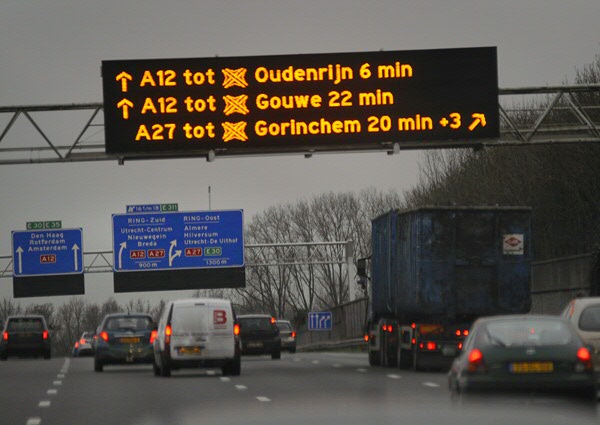In traffic we see more than we think
Would you notice if the speed limit on an electronic road sign changes? Are we aware of the route instructions that we follow? How is it possible that we avoid an obstacle without being aware of it? The aim of Ilse Harms’ PhD dissertation was to provide insight in the cognitive processes involved in visual information processing of familiar traffic environments. What is seen and what is not? For this study, various research techniques were used, such as a driving simulator and an observational study. Most remarkable conclusion: we don't always notice, but in traffic we see more than we think. Harms will be awarded her PhD by the UG on 23 September.
Drivers as well as pedestrians typically reported an interest in other road users’ behaviour. Reporting changes in objects on or alongside a familiar road or pavement proved difficult. However, participants’ behavioural responses revealed they had perceived more information than they were aware of. They complied with a route diversion sign on a motorway or avoided a signboard on a pavement. Without having any recollection of this immediately afterwards.
People get used to familiar traffic environments so much that they don’t have to think about walking or driving with much conscious focus. They can act without thinking about it, so they don’t always even remember what they’ve done. Despite the apparent lack of full or even partial awareness, road information – including information that has changed in an otherwise familiar environment – may still guide behaviour. This outcome is also important for the way in which research on road users should be conducted.

More news
-
03 February 2026
‘Such willpower’
-
20 January 2026
Alcohol, texting, and e-bikes
-
13 January 2026
Lonneke Lenferink joins The Young Academy
